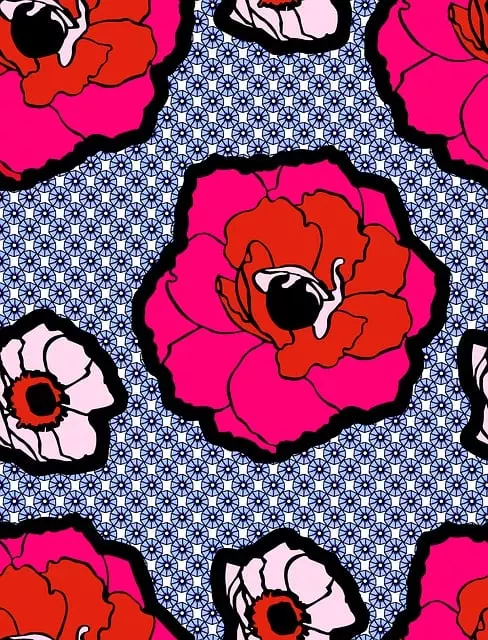Kratom, a Southeast Asian tropical plant, offers diverse medicinal benefits including pain relief, mood enhancement, and potential hair growth stimulation. Its active compound mitragynine interacts with opioid receptors for analgesic effects while promoting scalp health through anti-inflammatory properties. Responsible usage is crucial to prevent side effects like dry mouth and insomnia that may indirectly impact hair health. Kratom's adaptogenic qualities can aid in managing stress-related hair loss, encouraging regrowth and strengthening hair roots for a healthier scalp.
“Injury prevention and management with kratom: An alternative approach to healing. Discover how this ancient herb, scientifically known as Mitragyna speciosa, offers more than just pain relief. From its potential to aid in injury prevention to its surprising effects on hair loss and regrowth, this comprehensive guide explores kratom’s versatile benefits.
Learn about the plant’s unique properties, especially its role in mitigating physical trauma and supporting bodily recovery. We’ll delve into specific sections: ‘Understanding Kratom’, ‘Exploring Injury Prevention’, and ‘Revitalizing Hair Growth’. Uncover why kratom could be a game-changer for natural healing.”
- Understanding Kratom and Its Effects on the Body
- Exploring Kratom's Role in Injury Prevention
- Managing Hair Loss and Promoting Regrowth with Kratom
Understanding Kratom and Its Effects on the Body

Kratom, scientifically known as Mitragyna speciosa, is a tropical plant native to Southeast Asia. It has gained significant attention for its diverse medicinal properties, including pain relief and mood enhancement. The plant contains various alkaloids, with mitragynine being the primary active compound responsible for its effects on the body. When consumed, kratom interacts with opioid receptors, offering analgesic (pain-relieving) benefits similar to opioids but with a lower risk of addiction.
Contrary to some concerns, kratom is not inherently linked to hair loss. In fact, many users report improved hair health and growth when incorporated into a balanced lifestyle. Mitragynine has anti-inflammatory properties that can contribute to overall wellness, including scalp health. However, excessive or prolonged use may lead to temporary side effects, such as dry mouth and insomnia, which can indirectly impact hair health if not properly managed. It’s crucial to understand that, like any substance, kratom should be used responsibly and in accordance with professional guidance to maximize its potential benefits while minimizing risks, including the prevention of kratom-induced hair loss and promotion of healthy hair growth.
Exploring Kratom's Role in Injury Prevention

Kratom, a natural herb with a growing popularity in recent years, has shown potential benefits in injury prevention and management. Beyond its well-known effects on pain relief and relaxation, kratom possesses anti-inflammatory properties that can aid in reducing swelling and inflammation associated with injuries. This makes it a promising alternative for individuals seeking non-pharmaceutical interventions to support their recovery.
In particular, kratom’s ability to stimulate hair growth has gained attention, offering hope to those experiencing hair loss due to various traumas or medical conditions. Scientific studies have indicated that the active compounds in kratom may promote scalp health and encourage the regrowth of hair follicles. This dual benefit—pain management and potential restoration of hair—makes kratom a fascinating area of exploration in injury prevention, addressing both physical discomfort and aesthetic concerns simultaneously.
Managing Hair Loss and Promoting Regrowth with Kratom

Kratom, a natural herb known for its diverse medicinal properties, has emerged as a potential ally in the fight against hair loss. Scientific studies and an increasing number of user accounts suggest that kratom can stimulate hair growth and promote regrowth in individuals experiencing alopecia or thinning hair. The herb’s ability to enhance blood circulation, reduce inflammation, and suppress anxiety may contribute to creating an optimal environment for healthy hair follicles.
Regular consumption of kratom is believed to strengthen hair roots and nourish the scalp, fostering a robust ecosystem that encourages new hair growth. Moreover, its adaptogenic properties might help manage stress-related hair loss, as stress is often considered a significant trigger for balding. By incorporating kratom into their wellness routines, individuals not only stand a chance at regrowing lost locks but also experience improved overall health and well-being.
Kratom has shown promising potential not just in injury prevention, but also in managing specific side effects like hair loss. Its natural compounds can stimulate regrowth and enhance overall well-being. However, it’s crucial to understand that more research is needed, and consultation with healthcare professionals is essential before integrating kratom into any health regimen, especially for its use in managing hair loss and promoting regrowth.






